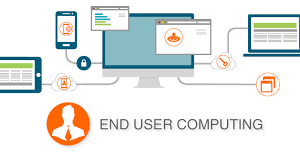- Description
- Curriculum
- Reviews
- Grade
Development Management is a multidisciplinary course that explores the principles, strategies, and practical tools needed to plan, implement, and evaluate development programs effectively. Focused on addressing complex social, economic, and environmental challenges, this course provides learners with a comprehensive understanding of how to manage development initiatives across diverse contexts, particularly in low- and middle-income countries.
The course examines how development projects are conceptualized, financed, and delivered, with an emphasis on stakeholder engagement, sustainability, and capacity building. It integrates theory with real-world case studies from governments, NGOs, international organizations, and community-based projects.
Students will develop essential skills in project cycle management, strategic planning, resource mobilization, monitoring and evaluation (M&E), and participatory development methods. Special attention is given to aligning projects with the United Nations Sustainable Development Goals (SDGs), ensuring that development is inclusive, equitable, and environmentally responsible.
🎯 Learning Objectives:
By the end of the course, learners will be able to:
-
Understand the key concepts and frameworks in development management.
-
Differentiate between types of development (economic, social, environmental, etc.).
-
Design and plan development projects using strategic and participatory methods.
-
Manage resources and stakeholders effectively to achieve development goals.
-
Apply tools for monitoring, evaluation, and risk management.
-
Promote sustainability and resilience in development initiatives.
🧑🎓 Ideal for:
-
Students of development studies, public policy, and international relations
-
NGO and nonprofit professionals
-
Government officials and civil servants
-
International development practitioners
-
Project and program managers
-
Anyone interested in sustainable development and global change
-
11.1 CONTACT DETAILSText lesson
-
21.2 COMPETENCEText lessonThis lesson is locked because you haven't completed the previous one yet. Finish the previous lesson to unlock this one.
-
31.3 ASSESSMENT STRATEGYText lessonThis lesson is locked because you haven't completed the previous one yet. Finish the previous lesson to unlock this one.
-
41.4 ASSESSMENT STRATEGYText lessonThis lesson is locked because you haven't completed the previous one yet. Finish the previous lesson to unlock this one.
-
51.5 AGREED ASSESSMENT PLANText lessonThis lesson is locked because you haven't completed the previous one yet. Finish the previous lesson to unlock this one.
-
61.6 Interview (RPL Purposes)Text lessonThis lesson is locked because you haven't completed the previous one yet. Finish the previous lesson to unlock this one.
-
71.7 LETTER OF COMMITMENT FROM THE LEARNERText lessonThis lesson is locked because you haven't completed the previous one yet. Finish the previous lesson to unlock this one.
-
81.8 Declaration of AuthenticityText lessonThis lesson is locked because you haven't completed the previous one yet. Finish the previous lesson to unlock this one.
-
91.9 PORTFOLIO BUILDINGText lessonThis lesson is locked because you haven't completed the previous one yet. Finish the previous lesson to unlock this one.
-
101.10 RECORD OF LEARNINGText lessonThis lesson is locked because you haven't completed the previous one yet. Finish the previous lesson to unlock this one.
-
111.11 ASSESSMENT DECISION & EVIDENCE EVALUATION RECORDText lessonThis lesson is locked because you haven't completed the previous one yet. Finish the previous lesson to unlock this one.
-
121.12 Assessor’s feedback report to the candidateText lessonThis lesson is locked because you haven't completed the previous one yet. Finish the previous lesson to unlock this one.
-
131.13 Moderator’s ReportText lessonThis lesson is locked because you haven't completed the previous one yet. Finish the previous lesson to unlock this one.
-
141.14 ASSESSMENT REVIEWText lessonThis lesson is locked because you haven't completed the previous one yet. Finish the previous lesson to unlock this one.
-
151.15 Candidate Appeal FormText lessonThis lesson is locked because you haven't completed the previous one yet. Finish the previous lesson to unlock this one.
-
161.16 Assessor's Contingency PlanText lessonThis lesson is locked because you haven't completed the previous one yet. Finish the previous lesson to unlock this one.
-
172.1 SayPro Lesson in Introduction to Development ManagementText lessonThis lesson is locked because you haven't completed the previous one yet. Finish the previous lesson to unlock this one.
-
182.2 SayPro Lesson in Types of DevelopmentText lessonThis lesson is locked because you haven't completed the previous one yet. Finish the previous lesson to unlock this one.
-
192.3 SayPro Lesson in Development Planning and StrategyText lessonThis lesson is locked because you haven't completed the previous one yet. Finish the previous lesson to unlock this one.
-
202.4 SayPro Lesson in Project Cycle ManagementText lessonThis lesson is locked because you haven't completed the previous one yet. Finish the previous lesson to unlock this one.
-
212.5 SayPro Lesson in Stakeholder Engagement and ParticipationText lessonThis lesson is locked because you haven't completed the previous one yet. Finish the previous lesson to unlock this one.
-
222.6 SayPro Lesson in Resource Mobilization and Financial ManagementText lessonThis lesson is locked because you haven't completed the previous one yet. Finish the previous lesson to unlock this one.
-
232.7 SayPro Lesson in Monitoring, Evaluation, and Learning (MEL)Text lessonThis lesson is locked because you haven't completed the previous one yet. Finish the previous lesson to unlock this one.
-
242.8 SayPro Lesson in Risk Management in DevelopmentText lessonThis lesson is locked because you haven't completed the previous one yet. Finish the previous lesson to unlock this one.
-
252.9 SayPro Lesson in Leadership and Capacity BuildingText lessonThis lesson is locked because you haven't completed the previous one yet. Finish the previous lesson to unlock this one.
-
262.10 SayPro Lesson in Sustainable Development and Future TrendsText lessonThis lesson is locked because you haven't completed the previous one yet. Finish the previous lesson to unlock this one.

Recent Posts
- SayPro Online Course SAQA 113836 ICT Basic Skills NQF Level 03 Credits 11 Booking Confirmation starting from 02 June 2025 to 02 June 2025
- SayPro Phidelia Dube submission of SayPro SayPro Monthly February Education Professional Development Workshops Report and Update by SCHAR 2025-02-01 to SayPro Chancellor SCHAR under SayPro Education Royalty 2025-02-01 to2025-02-28
- SayProCHAR Daily Activity Report by Phidelia Dube Education Officer 02 June 2025
- SayProCHAR – Daily Report by Linda Tivane – Education Specialist – 02 june 2025
- SayProCHAR Daily Activity Report




